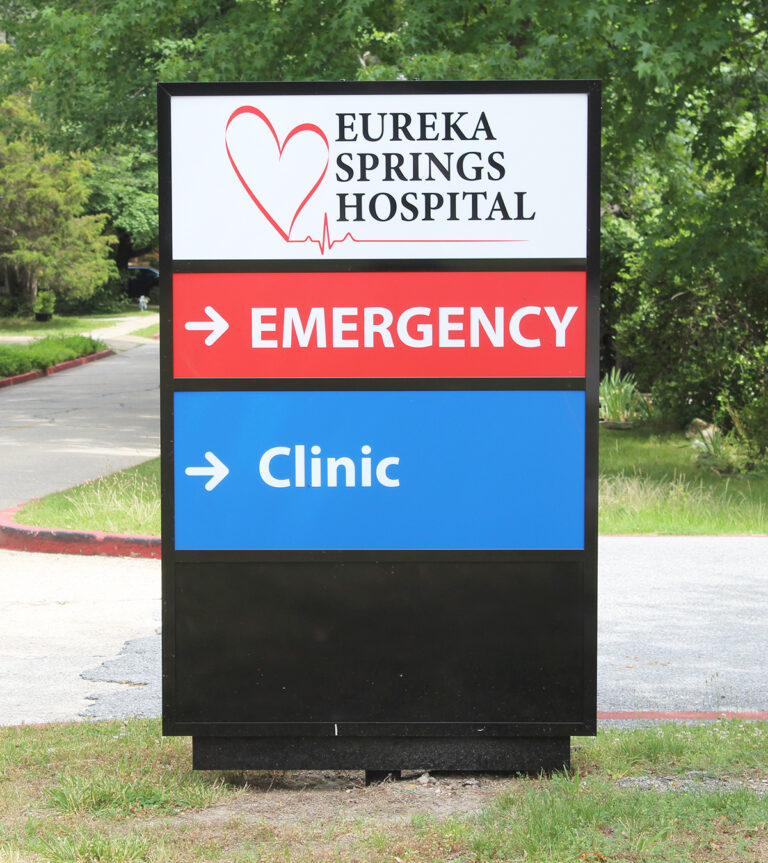The Eureka Springs Hospital Commission might be ambulance shopping in the near future.
At its June 20 regular meeting, the commission heard from Eureka Springs Hospital CEO Angie Shaw about issues with area transport services that are causing major delays in getting patients moved to larger facilities.
“We are having a lot of issues getting patients transferred out for a higher level of care,” Shaw said. “There’s a lot of transport companies that have closed within the past couple of months and just the need from other facilities is making it impossible for us to get them to come to our rural hospital.
“We are looking at some different options and one of those options is purchasing and operating our own transport ambulance for our patients. We are in the infancy stage on this option. We’re just discovering what we would need to do to start one up and how that would affect our facility.”
Bill Couch, hospital chief financial officer, told the commission that any purchase of an ambulance “will have to stand on its own.”
“I do want to err on the side of caution on getting into the ambulance, transporting patient business,” Couch said. “… Because it’s not for Medicare or Medicaid purposes, it is not cost-base reimbursed.”
Couch asked about the ambulance service in Berryville.
“And we have a great [ambulance service] here in Eureka, but they can’t normally transport out of the western district of Carroll County,” commission chair Barbara Dicks said. “So, what we’re talking about is just for our patients, when we get someone that we can’t find a transport for … we would not go into business or competition with our city ambulance. This is just for our patients.”
The current wait time for some patients is up to three days, Shaw said. “We’re now sitting on patients in the ER for anywhere from 48 to 72 hours because we can’t get them transferred,” Shaw said.
In her report to the commission, Shaw also discussed the recent spike in COVID-19 numbers and how the hospital has reinstated many safeguards.
“Over the past several weeks we’ve had 38 positive COVID tests and due to that increase in the community, we have re-implemented some safety back into the facility,” Shaw said. “We added back our plexiglass barriers in all the break areas and cafeteria as well as masks are again required in all non-clinical areas, like office spaces.”



